|
|
|
|
|
|
|
|
|
Protecting Polar Ocean Spaces, January 17, 2018 (Washington, DC USA). Two landmark events occurred in the closing months of 2017 that demonstrate the ability of nations to protect the Polar Regions. In December, nine nations and the European Union successfully concluded negotiations on an agreement to prevent unregulated fishing in the high seas portion of the Central Arctic Ocean (CAO). In the same month, 24 nations and the European Union welcomed the entry into force of the Ross Sea Marine Protected Area (MPA) in Antarctica. The MPA, which will remain in place for at least 35 years, encompasses 1.8 million square miles, and is the largest marine protected area in the world. The Wilson Center will host a description and discussion of these two important milestones in polar ocean governance.
ISAR-5 Fifth International Symposium on Arctic Research, January 15-18, 2018 (Tokyo, Japan). The fifth ISAR has been planned at the recommendation of the science steering committee of ISAR-4, which was held in Toyama, Japan in April 2015. The fifth ISAR will be devoted to discussions on environmental changes in the Arctic and their regional and global implications, to seek additional international scientific collaboration in this area by gathering, synthesizing and sharing information related to these changes occurring in the Arctic. Special emphasis will be placed on the fields of the social sciences and humanities, which were not included in the previous ISARs. ISAR-5 will consist of general sessions and special sessions. The general sessions will address the following topics: atmosphere; ocean and sea ice; rivers, lakes, permafrost, and snow cover; ice sheets, glaciers, and ice cores; terrestrial ecosystems; marine ecosystems; geospace; policies and economy; and social and cultural dimensions. Special sessions will be solicited on cross-cutting themes.
|
Media
 In the Coldest Village on Earth, Eyelashes Freeze, Dinner is Frozen and Temperatures Sink to -88F. In the Coldest Village on Earth, Eyelashes Freeze, Dinner is Frozen and Temperatures Sink to -88F. In this remote outpost in Siberia, the cold is no small affair. Eyelashes freeze, frostbite is a constant danger and cars are usually kept running even when not being used, lest their batteries die in temperatures that average minus-58 degrees Fahrenheit in the winter, according to news reports. This is Oymyakon, a settlement of some 500 people in Russia's Yakutia region, that has earned the reputation as the coldest permanently occupied human settlement in the world. The Washington Post
New Icebreaker Will Have Space, Power for Weapons: Coast Guard. The Coast Guard's new heavy icebreaker will have space, weight, and electrical power set aside to carry offensive weapons, Commandant Paul Zukunft said here today. While Adm. Zukunft has publicly advocated making the icebreaker capable of carrying cruise missiles, this is the first confirmation we've seen that design work is indeed underway. It's vital to note that the icebreaker won't be armed when it first hits the water in 2023. Zukunft's current strategy is to work with Russians. While they're building cruise-missile armed icebreakers, the Russians also participated with the US and six other Arctic nations in a huge search-and-rescue exercise off Iceland in September, he emphasized to reporters. Breaking Defense 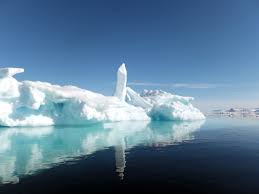 Warming Climate Could Affect Life in Arctic Ocean, Says New Study. Warming Climate Could Affect Life in Arctic Ocean, Says New Study. Climate change is transforming the Arctic Ocean in ways that could permanently alter the food chain and impact ocean species, according to a new study. The study, published in the journal Science Advances, looked at the concentration of the chemical element radium-228 in the central Arctic Ocean and found that between 2007 and 2015 the concentration doubled. CBC News Things are Looking Up at Arctic Air Base. Recent missile threats to the United States have the military looking up to its northern most installation, Thule Air Base, Greenland. It's there that the Air Force monitors the skies for missiles from its Arctic location strategically positioned at the halfway point between Washington, D.C. and Moscow. "Thule's unique location makes it a key asset to the United States, however its unique environment makes it a difficult asset to maintain," said Dan Rodriguez, acting-Deputy Base Civil Engineer, Peterson Air Force Base, Colorado. US Air Force Arctic Photosynthetic Capacity and Carbon Dioxide Assimilation Underestimated by Terrestrial Biosphere Models. Carbon uptake and loss from the Arctic is highly sensitive to climate change, and these processes are poorly represented in computational models of the Earth. A key challenge is representing carbon dioxide uptake by plants in the Arctic. These models rely on details developed in warmer climates. This study provided the first Arctic dataset of two key photosynthetic parameters. The parameters were markedly lower in the models than the values measured on the coastal tundra of northern Alaska. In some case, the values were five-fold lower. On average, the capacity for carbon dioxide uptake by Arctic vegetation is double current model estimates. Phys.org 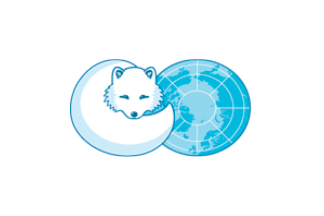 UArctic Network Nominates Arctic Council for Nobel Peace Prize. UArctic Network Nominates Arctic Council for Nobel Peace Prize. Nominations for the Nobel Peace Prize are generally kept under wraps until the short list of nominees for the prestigious award honoring "the best work for fraternity between nations" are announced in February. But yesterday an international group of about 60 academics, who are members of a group within the University of the Arctic that studies geopolitics and security, circulated a letter Jan. 15 that nominates the Arctic Council for a Nobel Peace Prize. Nunatsiaq Online Tiny Parasite May Pose Health Risks for Canada's North. You don't hear much about the dangers posed by toxoplasmosis, but infections caused by the tiny parasite are powerful enough to make you sick and cause damage to the brain, eyes and other organs. With levels of human infection in parts of the Canadian Arctic among the highest in the world, researchers are paying more attention to the presence of toxoplasma gondii in wildlife and water supplies and how the risks of infection can be lowered. Nunatsiaq Online
|
|
Future Events
Alaska Region Climate Outlook Briefing, January 19, 2018 (Fairbanks, Alaska USA/ webinar). This event is sponsored by the Alaska Center for Climate Assessment and Policy. This webinar will review recent conditions and current state of the climate system in and near Alaska and the status of important global climate drivers, review guidance available for the monthly and seasonal scale outlooks and finish up the official outlooks by NOAA's Climate Prediction Center.
2018 Arctic Frontiers: Connecting the Arctic, January 21-26, 2018 (Tromso, Norway). Arctic Frontiers is an international arena on sustainable development in the Arctic. The conference addresses the management of opportunities and challenges to achieve viable economic growth with societal and environmental sustainability. Arctic Frontiers brings academia, government and business together to create a firmer foundation for decision-making and sustainable economic development in the Arctic. Join the Arctic Frontiers conference preparing the new Arctic future. The conference takes place the fourth week of January in the Norwegian city of Tromsø, known as the Gateway to the Arctic.
Alaska Marine Science Symposium, January 22-26, 2018 (Anchorage, Alaska.) The Alaska Marine Science Symposium (AMSS) is Alaska's premier marine research conference. For over 20 years, it has brought together scientists, educators, resource managers, students, and the public to discuss marine research conducted in Alaskan waters. Over 700 people attend this 4-day long conference held annually in January. Each day of the conference highlights Alaskan marine ecosystems: Bering Sea & Aleutian Islands (Wednesday), and the Gulf of Alaska (Tuesday), and Arctic (Thursday). Research topics discussed range from ocean physics, fishes and invertebrates, seabirds, marine mammals, to local traditional knowledge. Website for 2018 meeting is here.
** New this week ** Climate Change and Health in the Arctic: Impacts on Alaska Native Communities and a Spotlight on Efforts to Improve Climate Health, January 25, 2018 (Webinar). Climate warming in the Arctic is occurring twice as fast as the global average. Although Alaska Native peoples are resilient, live in one of the most severe climates on earth, and have adapted to varying conditions throughout history, current changes to climate are rapid and extreme. These changes are severely impacting the lives and communities of Alaska Natives, since many people in Arctic villages live close to the land and rely on subsistence lifestyles. During this webinar, learn more about climate change in the Arctic, how it is affecting the health of indigenous people, and various types of work occurring in this space - including state and local efforts and a spotlight on an NIHB-funded grant for the Village of Wainwright. The presentation will also include resources for climate change and climate health in the Arctic.
Alaska Forum on the Environment, February 12-16, 2018 (Anchorage, Alaska)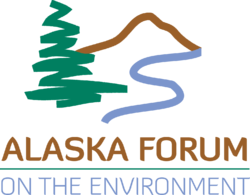 . AFE is a statewide gathering of environmental professionals from government agencies, non-profit and for-profit businesses, community leaders, Alaskan youth, conservationists, biologists and community elders. The diversity of attendees sets this conference apart from any other. The 2018 event will be our 20th year providing a strong educational foundation for all Alaskans and a unique opportunity to interact with others on environmental issues and challenges. . AFE is a statewide gathering of environmental professionals from government agencies, non-profit and for-profit businesses, community leaders, Alaskan youth, conservationists, biologists and community elders. The diversity of attendees sets this conference apart from any other. The 2018 event will be our 20th year providing a strong educational foundation for all Alaskans and a unique opportunity to interact with others on environmental issues and challenges.
Methane Variation Over Terrestrial and Marine Arctic Areas (2010-2016): IASI Satellite Data, March 13, 2018 (Silver Spring, Maryland USA). There is evidence that methane is being released into the atmosphere at high northern latitudes as the Arctic warms up. Methane concentration in the Arctic lower troposphere was estimated between 2010 and 2016 with the Infrared Atmospheric Sounding Interferometer (IASI), a thermal IR spectrometer orbiting the Earth on a satellite MetOp-A. The area studied encompasses the Barents/ Kara seas and the Wester Siberian Lowland (WSL), one of the most important methane sources in high northern latitudes. This event is a NOAA's National Ocean Service Science Seminar.
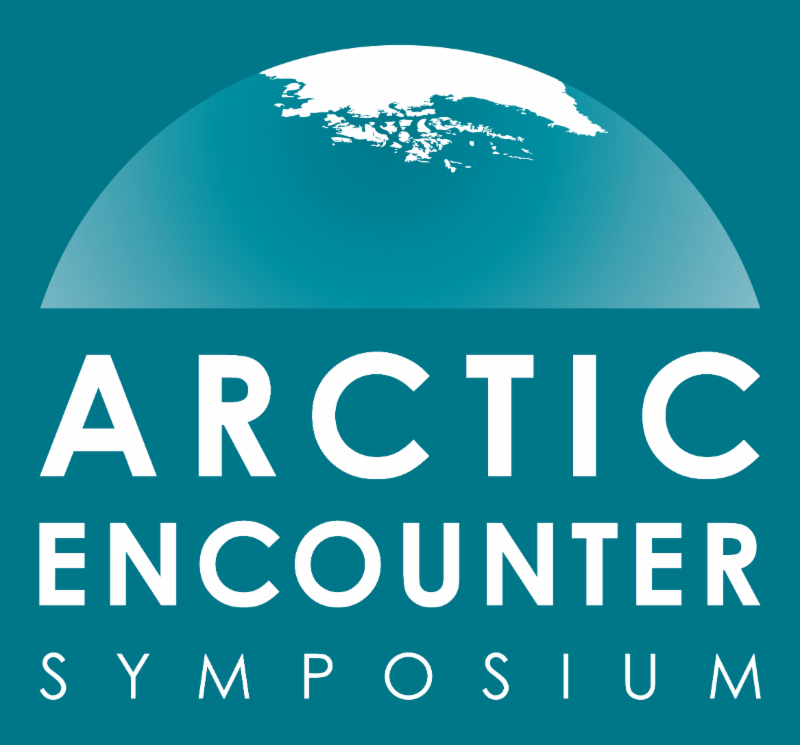 5th Annual Arctic Encounter Symposium (AES), April 19-20, 2018 (Seattle, WA, USA) 5th Annual Arctic Encounter Symposium (AES), April 19-20, 2018 (Seattle, WA, USA) - The Arctic Encounter, the largest annual Arctic policy conference in the U.S., will convene policymakers, industry leaders, scientists, Arctic artists and musical performers, and other stakeholders to debate and discuss emerging Arctic challenges and opportunities including policy, innovation, security, and development. The mission of AES is to raise awareness, engage challenges, and develop solutions for the future of the Arctic region and the people who live there. The 5th annual AES will take place in downtown Seattle at the Bell Harbor International Conference Center on Pier 66.
2018 North by North Festival, April 23-29, 2018 (Anchorage, Alaska USA). The North by North Festival captures the spirit of Alaska and the Arctic - to address our challenges and opportunities with Northern innovation and resilience, to build on a rich history and to ensure a future full of promise. The Festival is for the North, and organized by Northerners, with goals of sustainability, livability and growth. The Festival brings innovators from across Alaska, the nation and other Arctic regions to collaborate and address local and circumpolar challenges. Through knowledge, governance, business, design, film, music, food, literature and art, we celebrate the North.
The Effects of Climate Change on the World's Oceans, June 4-8, 2018 (Washington, DC USA). The 4th International Symposium will bring together experts from around the world to better understand climate impacts on ocean ecosystems - and how to respond. The event is hosted by a variety of groups including International Council for the Exploration of the Sea (ICES), N. Pacific Marine Science Organization (PICES), Intergovernmental Oceanographic Commission of UNESCO (IOC), and Food and Agriculture Organization of the United Nations (FAO).
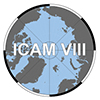
International Conference on Arctic Margins (ICAM) VIII, June 11-14, 2
The international Conference on Arctic Margins (ICAM) is a forum for earth scientists who study the Arctic. It was founded to help understand the little known Arctic geology and to foster cooperation and collaboration among Arctic researchers. There have been 7 meetings since its inception in 1991. See here for more information.
 POLAR 2018, June 15-27, 2018 (Davos, Switzerland). POLAR2018 is a joint event from the Scientific Committee on Antarctic Research (SCAR) and the International Arctic Science Committee (IASC). The SCAR meetings, the ASSW and the Open Science Conference will be hosted by the Swiss Federal Institute for Forest, Snow and Landscape Research WSL under the patronage of the Swiss Committee on Polar and High Altitude Research. The WSL Institute for Snow and Avalanche Research SLF is organizing POLAR2018. POLAR 2018, June 15-27, 2018 (Davos, Switzerland). POLAR2018 is a joint event from the Scientific Committee on Antarctic Research (SCAR) and the International Arctic Science Committee (IASC). The SCAR meetings, the ASSW and the Open Science Conference will be hosted by the Swiss Federal Institute for Forest, Snow and Landscape Research WSL under the patronage of the Swiss Committee on Polar and High Altitude Research. The WSL Institute for Snow and Avalanche Research SLF is organizing POLAR2018.
Arctic Observing Summit 2018, June 24-26, 2018 (Davos, Switzerland). The Arctic Observing Summit (AOS) is a high-level biennial summit that provides a platform to address urgent and broadly recognized needs of Arctic observing across all components of the Arctic system. AOS 2018 will be held in Davos, Switzerland ( June 24-26) and will focus on pressing issues in the implementation and support of sustained observations that can be addressed through a business-case lens. To that end, short submissions are requested that address any and all aspects of the overarching theme and sub-themes. Additional information can be found here.
17th International Congress of Circumpolar Health (ICCH17), August 12-15, 2018 (Copenhagen, Denmark). The ICCH congresses are held every third year in different locations in the circumpolar area and represent the largest scientific meetings worldwide on circumpolar health. The ICCH congresses serve as the primary source of information exchange and scholarly communication in issues relating to circumpolar health. More than 750 participants generally register and participate in each Congress, and more than 400 scientific papers or posters are usually presented.
UArctic Congress 2018, September 3-7, 2018 (Oulu and Helsinki, Finland).
The UArctic Congress 2018 will bring together key UArctic meetings and a science conference into one single gathering, including business meetings of the Council of UArctic, Rectors' Forum, Student Forum, and Thematic Networks & UArctic Institutes Leadership Team. The Congress is an integral part of the Finland's Arctic Council chairmanship program, and open to the public. The event will highlight the themes and priorities of the Finnish chairmanship, including the goals of the United Nations' 2030 Agenda for Sustainable Development, and the Paris Agreement under the UN Framework Convention on Climate Change.
The second Arctic Biodiversity Congress is hosted by the Conservation of Arctic Flora and Fauna (CAFF), the biodiversity working group of the Arctic Council, and the Ministry of the Environment, Finland. The second Arctic Biodiversity Congress will build on the success of the first Congress, held in 2014 in Trondheim, Norway, and will bring together scientists, policymakers government officials, Indigenous representatives, Traditional Knowledge holders, industry, non-governmental organizations, and others to promote the conservation and sustainable use of Arctic biodiversity.
|
|

  
4350 N. Fairfax Drive, Suite 510
Arlington, VA 22203, USA
External links in this publication, and on the USARC's World Wide Web site ( www.arctic.gov) do not constitute endorsement by the US Arctic Research Commission of external Web sites or the information, products or services contained therein. For other than authorized activities, the USARC does not exercise any editorial control over the information you may find at these locations. These links are provided consistent with the stated purpose of this newsletter and the USARC Web site.
|
|
|
|
|
|
|
|
|
 In the Coldest Village on Earth, Eyelashes Freeze, Dinner is Frozen and Temperatures Sink to -88F. In this remote outpost in Siberia, the cold is no small affair. Eyelashes freeze, frostbite is a constant danger and cars are usually kept running even when not being used, lest their batteries die in temperatures that average minus-58 degrees Fahrenheit in the winter, according to news reports. This is Oymyakon, a settlement of some 500 people in Russia's Yakutia region, that has earned the reputation as the coldest permanently occupied human settlement in the world. The Washington Post
In the Coldest Village on Earth, Eyelashes Freeze, Dinner is Frozen and Temperatures Sink to -88F. In this remote outpost in Siberia, the cold is no small affair. Eyelashes freeze, frostbite is a constant danger and cars are usually kept running even when not being used, lest their batteries die in temperatures that average minus-58 degrees Fahrenheit in the winter, according to news reports. This is Oymyakon, a settlement of some 500 people in Russia's Yakutia region, that has earned the reputation as the coldest permanently occupied human settlement in the world. The Washington Post Warming Climate Could Affect Life in Arctic Ocean, Says New Study. Climate change is transforming the Arctic Ocean in ways that could permanently alter the food chain and impact ocean species, according to a new study. The study, published in the journal Science Advances, looked at the concentration of the chemical element radium-228 in the central Arctic Ocean and found that between 2007 and 2015 the concentration doubled. CBC News
Warming Climate Could Affect Life in Arctic Ocean, Says New Study. Climate change is transforming the Arctic Ocean in ways that could permanently alter the food chain and impact ocean species, according to a new study. The study, published in the journal Science Advances, looked at the concentration of the chemical element radium-228 in the central Arctic Ocean and found that between 2007 and 2015 the concentration doubled. CBC News UArctic Network Nominates Arctic Council for Nobel Peace Prize. Nominations for the Nobel Peace Prize are generally kept under wraps until the short list of nominees for the prestigious award honoring "the best work for fraternity between nations" are announced in February. But yesterday an international group of about 60 academics, who are members of a group within the University of the Arctic that studies geopolitics and security, circulated a letter Jan. 15 that nominates the Arctic Council for a Nobel Peace Prize. Nunatsiaq Online
UArctic Network Nominates Arctic Council for Nobel Peace Prize. Nominations for the Nobel Peace Prize are generally kept under wraps until the short list of nominees for the prestigious award honoring "the best work for fraternity between nations" are announced in February. But yesterday an international group of about 60 academics, who are members of a group within the University of the Arctic that studies geopolitics and security, circulated a letter Jan. 15 that nominates the Arctic Council for a Nobel Peace Prize. Nunatsiaq Online






